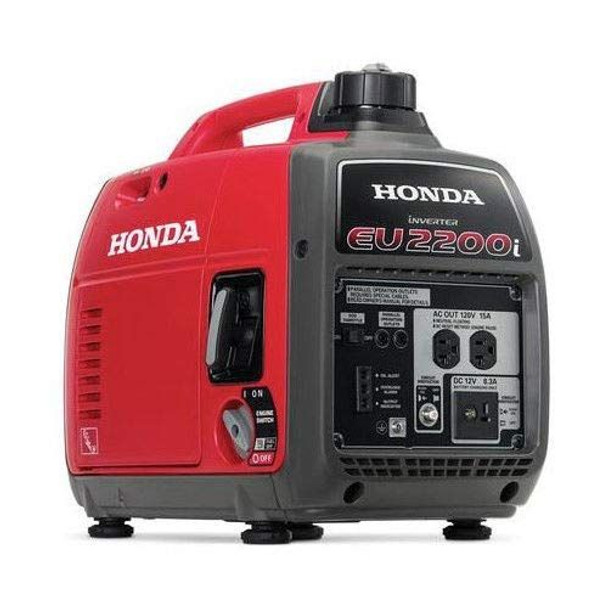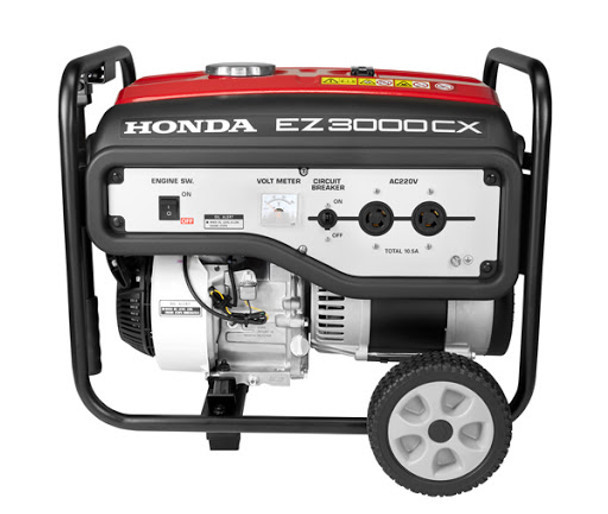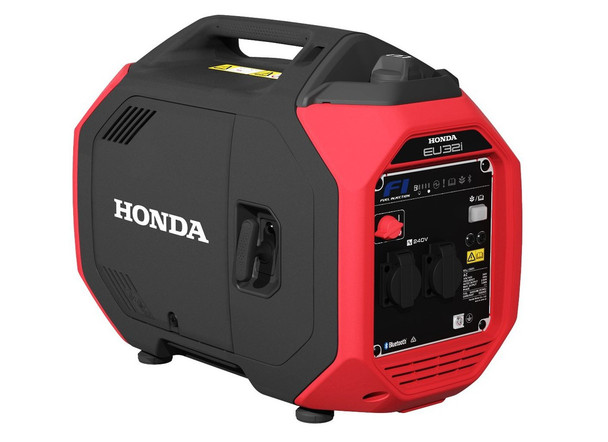Comparing Inverter Generators vs. Conventional Generators
Key takeaway
When comparing inverter generators to conventional generators, it's essential to consider the specific needs and requirements of your power generation applications. While conventional generators offer higher power output and are typically more cost-effective upfront, inverter generators provide several distinct advantages such as quieter operation, fuel efficiency, and cleaner power output. Inverter generators are particularly well-suited for sensitive electronic devices, recreational activities, and situations where noise level and portability are crucial factors.
Introduction
Inverter generators and conventional generators represent two distinct approaches to providing electrical power, each with its own set of unique characteristics and applications. In today's world, where electricity powers every facet of our lives, having a reliable source of backup power is more important than ever. When the lights go out, whether due to a natural disaster or a planned outage, the right generator can be a lifeline. But with so many options available, the choice between inverter generators and conventional generators can be a pivotal one.
Inverter generators and conventional generators each have their own set of strengths and weaknesses, and understanding the differences between the two is essential for making an informed decision. This article explores the key distinctions between these two types of generators, offering valuable insights to help you select the most suitable power solution for your needs.
As we delve into the world of inverter generators and conventional generators, we will examine their functionalities, applications, advantages, and limitations. By the end of this comparison, you'll be equipped with the knowledge necessary to choose the generator that best aligns with your power requirements, whether it's for camping, home backup, construction sites, or any other situation where reliable power is a must.

Inverter Generators
An inverter generator is a type of generator that produces AC power by using a computer-controlled inverter. Unlike conventional generators, which have a separate engine and generator, an inverter generator combines these two parts into one machine, making it lighter and more compact. They work by taking AC power from the engine, converting it to DC power, and then inverting it back to clean and stable AC power. This process ensures less fluctuation in the current and voltage of the power output, which is important for sensitive electronics and appliances.
Advantages of Inverter Generators
Some of the benefits of using an inverter generator are:
- Clean and stable power output: An inverter generator produces a pure sine wave, which is the best and cleanest form of power. This means that the power output is consistent.
- Fuel efficiency: Inverter generators can adjust their engine speed according to the load demand, which means that it consumes less fuel than a conventional generator that runs at a constant speed.
- Quiet operation: An inverter generator is much quieter than a conventional generator because it has a smaller engine, a sound-reducing casing, and an acoustic paneling. Some models can operate as low as 53 decibels, which is about as loud as a quiet conversation.
- Lightweight and portable: Inverter generators are easy to carry and transport because it has a compact design and a lower weight than a conventional generator.
Limitations of Inverter Generators
Some of the drawbacks of using an inverter generator are:
- Limited power output: They have a lower power output than conventional generators because of their smaller engines and more complex circuitry. This means that inverter generators may not be able to run multiple or large appliances at the same time or for a long duration.
- Higher initial cost: Inverter generators are more expensive than conventional generators because they have more advanced technology and features. The initial cost may be offset by the lower fuel consumption and maintenance costs over time, but it may still be a significant investment for some users.
Common Use Cases for Inverter Generators
An inverter generator is ideal for situations where you need clean, stable, and efficient power for small to medium loads. Some common use cases are:
- Recreational use: Inverter generators can provide power for RVs, camping trip, outdoor events, etc. It can run lights, fans, heaters, radios, TVs, laptops, phones, etc., without disturbing the environment or other people.
- Domestic backup use: They can also provide power for your home during emergencies or power outages. It can run essential appliances such as fridges, freezers, microwaves, coffee makers, etc., without risking damage or malfunction.
- Professional use: Finally, inverter generators can provide power for your work site or business where you need reliable and quiet power for tools, equipment, machines, etc. It can run drills, saws, compressors, welders, printers, scanners, etc., without compromising quality or safety.
 Honda Inverter Generator Super Quiet EU220i
Honda Inverter Generator Super Quiet EU220i
Conventional Generators
A conventional generator is a type of generator that uses gasoline, diesel, or propane as fuel to generate electricity. The electricity is produced by an engine that rotates a generator head, which in turn generates the electricity. The generator head consists of a coil of wire that spins inside a magnetic field, creating an alternating current (AC) that matches the frequency of the engine speed. Conventional generators play pivotal roles in power plants, acting as backup and portable generators, and are even used in wind turbines.
Advantages of Conventional Generators
Some of the benefits of using a conventional generator are:
- High power output: A conventional generator can produce more power than an inverter generator due to it larger engine, this means that it can run multiple or large appliances at the same time or for a long duration.
- Cost-effectiveness for high wattage needs: Conventional generators are more economical than inverter generators, especially if you need a lot of power for your applications. The initial cost and the maintenance cost of a conventional generator are also lower than an inverter generator for the same wattage output. Conventional generators are also more widely available and easier to repair than inverter generators.
- Wide range of available fuel sources: A conventional generator can run on different types of fuel, such as gasoline, diesel, or propane. This gives you more flexibility and options to choose the most suitable and accessible fuel source for your needs.
Limitations of Conventional Generators
Some of the drawbacks of using a conventional generator are:
- Noisy operation: They are much louder than an inverter generator because of their larger engine, metal frame, and open design. The noise level can range from 65 decibels to over 100 decibels. The noise can be disturbing for you and your neighbors, especially at night or in quiet areas.
- Fuel inefficiency at lower loads: Conventional generators run at a constant speed regardless of the load demand, which means that they consume the same amount of fuel whether running at full capacity or not.
Common Use Cases for Conventional Generators
A conventional generator is ideal for situations where you need high, steady, and reliable power for large loads. Some common use cases are:
- Industrial use: They can provide power for your industrial site or business where you need high wattage power for heavy-duty equipment, machines, tools, etc.
- Commercial use: Conventional generators can provide power for your commercial site or business where you need backup power for essential appliances, systems, devices, etc.
- Residential use: Also, a conventional generator can provide power for your home during emergencies or power outages. It can run most of your household appliances and devices without interruption or inconvenience.
Use Cases and Recommendations
Inverter Generators are ideal for situations where you need clean, stable, and efficient power for small to medium loads. Some common use cases are recreational use, domestic backup use, and professional use. They are recommended if you need to power sensitive electronics and appliances, such as computers, TVs, phones, etc., without risking damage or malfunction. Also if you need to reduce the noise, emissions, and fuel consumption of your current generator, consider an inverter generator.
Conventional Generators are ideal for situations where you need high, steady, and reliable power for large loads. Some common use cases are industrial use, commercial use, and residential use. A conventional generator is recommended if you need to power multiple or large appliances at the same time or for a long duration, such as pumps, compressors, welders, etc., without compromising performance or safety. A conventional generator is also recommended if you need to save money on the initial cost and the maintenance cost of your generator.
Factors to Consider When Choosing Generators
When you are looking for a generator, you need to consider several factors that will affect your decision. These factors include your power requirements and load profile, noise considerations, portability needs, budget and long-term costs, and environmental impact and fuel availability. Here is a brief overview of each factor and how it can help you choose the right generator for your needs.
Power Requirements and Load Profile
The first factor to consider is your power requirements and load profile. This means how much power you need and how often you need it. You need to calculate the total wattage of the appliances and devices that you want to run with your generator, and also consider the starting wattage, which is usually higher than the running wattage. You also need to determine how long you need to run your generator and how frequently you need to use it.
Based on your power requirements and load profile, you can choose between an inverter generator or a conventional generator. An inverter generator is suitable for small to medium loads that require clean and stable power, such as sensitive electronics and appliances. A conventional generator is suitable for large loads that require high and steady power, such as heavy-duty equipment and machines.
Noise Considerations
The second factor to consider is noise considerations. The noise level of your generator can affect your comfort and convenience, as well as the environment and other people around you. Based on your noise considerations, you can choose between an inverter generator or a conventional generator. An inverter generator is much quieter than a conventional generator due to several design features like its smaller engine and sound-reducing casing. Therefore if noise is a big issue for you, and you do not have a large load requirement, inverter generators are definitely the way to go.
Portability Needs
The third factor to consider is portability needs. The portability of your generator can affect your convenience and flexibility, as well as the storage and operation of your generator.
Based on your portability needs, you can choose between an inverter generator or a conventional generator. An inverter generator is easy to carry and transport because it has a compact design and a lower weight than a conventional generator. Portability is vital when the generator needs to move to various sites or serve as a backup power source. In those cases you can consider an inverter generator. Otherwise conventional generators might be the way to go for you.
Budget and Long-Term Costs
The fourth factor to consider is budget and long-term costs. This means how much money you need to spend to buy and run your generator, as well as how often you need to service and repair your generator. The budget and long-term costs of your generator can affect your financial situation and satisfaction. Based on your budget and long-term costs, you can choose between an inverter generator or a conventional generator. An inverter generator is more expensive than a conventional generator because it has more advanced technology and features. However, a conventional generator is more economical than an inverter generator if you need a lot of power for your applications. Besides that, inverter generators generally need less maintenance than conventional generators.
Environmental Impact and Fuel Availability
The fifth factor to consider is environmental impact and fuel availability. This means how much pollution your generator produces and how easy it is to find the fuel source for your generator. The environmental impact and fuel availability of your generator can affect the sustainability and accessibility of your power supply. An inverter generator produces less emissions than a conventional generator because it consumes less fuel (gasoline) and adjusts its engine speed according to the load demand. A conventional generator produces more emissions than an inverter generator because it consumes more fuel and runs at a constant speed regardless of the load demand. However, a conventional generator can run on different types of fuel, such as gasoline, diesel, or propane, which may be more available or affordable in some areas. Some conventional generators can also be converted to run on natural gas or biogas, which are more environmentally friendly than fossil fuels.
Related article:
Where To Buy Generators In Nigeria
Which Generator is Best for Home use in Nigeria 2023
Tips To Maintain Your Inverter Battery
 Honda Portable generator EU32i
Honda Portable generator EU32i
Conclusion
In this article, we have compared inverter generators and conventional generators, two types of generators that can provide you with reliable electricity when you need it. We have discussed the key differences between them in terms of power output and efficiency, noise levels, portability, cost, and others. The main points to remember are
An inverter generator is suitable for small to medium loads and is much quieter, more fuel efficient, and more portable than a conventional generator. While a conventional generator is suitable for large loads that require high and steady power, it is also more economical, more powerful, and more versatile than an inverter generator. Now when it comes to making a decision, depending on your situation, you may need to consider other factors such as your budget, your portability needs, and fuel availability. All you need to do is compare the different models and brands of generators to find the best one for you. However you can save yourself all that hassle and Contact Us for a free recommendation today.










